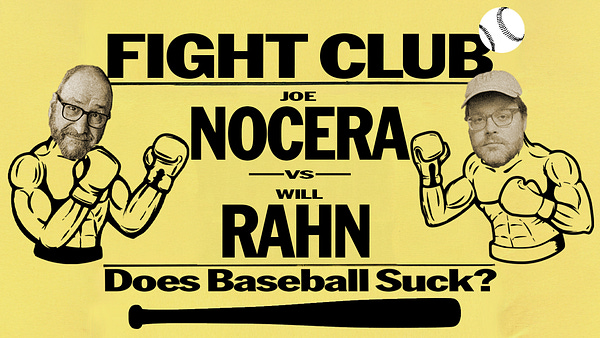
The Free Press

Picture this: you’re hanging out at a Fourth of July barbecue when your friend hands you a stick of dynamite. Not real dynamite, obviously—that would be insane, and dangerous!—but a harmless facsimile, a piece of clay with a lil’ sparkler stuck in the end. “Go on, light it,” he says, and you do, laughing, before passing the fake dynamite to your friend, who also laughs.
He’s still laughing when the dynamite—which is, as it turns out, real—explodes in his face.
In this nightmare hypothetical, would you deserve to go to jail?
It’s a question that brings us to the trial of actor Alec Baldwin, which began today, nearly three years after he shot and killed a woman on a movie set outside Sante Fe. The charge is involuntary manslaughter, not murder; Baldwin, who fired the reproduction revolver that killed Rust’s cinematographer Halyna Hutchins, had been told the weapon wasn’t loaded. But through some combination of negligence and incompetence, there was one real bullet in the gun’s chamber.
What happened that day, in October 2021, was a horrible tragedy, but also unambiguously an accident—and yet, Baldwin has been subjected to an unusually zealous prosecution by New Mexico authorities. It’s a case that illuminates just how complex things can get when criminal justice intersects with a person’s celebrity status.
The prosecution’s motivations in the case are myriad, including a grudge on the part of the district attorney who initially brought charges against Baldwin. In a recent New York Times deep dive, Mary Carmack-Altwies said her decision was influenced by the fact Baldwin gave an interview to ABC’s George Stephanopoulos in December 2021 to share his side of the story. She told the Times she found it enraging: “This guy, how dare he?”
If the man on trial were not a celebrity, we might recognize the gross authoritarianism of this: a tragic but accidental death escalated to a felony trial, just because the prosecutor took exception to the defendant’s exercise of his First Amendment rights.
Also in the mix: political motivations. Carmack-Altwies invited district attorney Andrea Reeb to be a special prosecutor on the case in 2022, while Reeb was also campaigning for a seat in New Mexico’s House of Representatives. Per the Times, while her involvement was still under wraps, Reeb emailed Carmack-Altwies: “I’d at least like to get out there that I am assisting you. . . as it might help in my campaign lol.”
Carmack-Altwies and Reeb brought charges against Baldwin in January 2023. Both stepped away from the case a few months later, but by then a criminal trial was inevitable.
As both prosecutors perhaps recognized, Baldwin is not popular in the court of public opinion. He has a reputation for combativeness; some have still not forgiven him for the leaked 2007 voicemail in which he called his then–11-year-old daughter a “rude, thoughtless pig”; others view the mere existence of the charges against him as proof enough of culpability. In April of this year, an X user who goes by the name “Crackhead Barney” went viral after she posted a video of herself harassing Baldwin in a coffee shop.
“Why did you kill that lady?” she squawks. “You killed that lady and got no jail time?!”
Baldwin may, in fact, still serve jail time, depending on whether a jury finds that he was grossly negligent in his handling of the prop gun. It’s a tenet of basic firearm safety to never point a weapon at anyone, loaded or not. But some movie scenes require guns to be plausibly aimed at people, so it’s also a tenet to have a crew member on set whose sole job it is to make sure none of the weapons contain live ammunition.
On the set of Rust, that person was armorer Hannah Gutierrez-Reed—who first allowed real bullets to be mixed with the set’s dummy rounds, then allowed one of those bullets to make it into the chamber of the revolver she handed to Alec Baldwin, assuring him as she did that it wasn’t loaded.
This spring, Gutierrez-Reed was found guilty of involuntary manslaughter and sentenced to 18 months in prison, but the media’s treatment of her has been tempered with sympathy, invariably mentioning how inexperienced she was, how overworked and underpaid. But Gutierrez-Reed wasn’t famous. Alec Baldwin is, which puts him at a disadvantage in a world where celebrity trials are treated like a spectator sport.
In this world, the roles of victim and villain are determined by an inscrutable calculus: the more powerful and privileged you are, the less sympathy you get, with additional points off for being a jerk, a weirdo, or a weird jerk. This last one is arguably how Amber Heard snatched defeat from the jaws of victory in her case against Johnny Depp, particularly once allegations emerged that after a fight with her husband, she had intentionally defecated on their bed.
On the other hand, successfully spinning the narrative in your favor can mitigate the handicap of fame, as in Gwyneth Paltrow’s civil trial against the septuagenarian she collided with on a Park City ski slope. Paltrow’s insistence on going to court proved a genius strategy: suddenly, this was a story about a strong woman refusing to be bullied, a story in which her celebrity status made her not just sympathetic, but perhaps even a victim. The plaintiff became a gold-digger, as we all found ourselves asking: If it had been a dental hygienist from Des Moines who crashed into Terry Sanderson, would he have chased her into a courtroom in search of a payday?
Alec Baldwin, alas, is no girlboss. Actually, he’s just about the most unsympathetic collection of things you can be in 2024: an old, white, rich, and famous man protesting his innocence. To make matters worse, he’s facing off against an all-female prosecutorial team who look, collectively, like they should be starring in a Fargo-style series about using the law to smash the patriarchy.
At this spectacle, the jury currently sitting in a Santa Fe courtroom will surely be glued to their seats. But if they don’t find Alec Baldwin a sympathetic protagonist, they’ll hopefully remember that, however much power and privilege he has, it pales in comparison to the brute strength of the state.
Kat Rosenfield is a columnist at The Free Press. Read her recent piece, “In Defense of Violent Rap,” and follow her on X @katrosenfield.















Actually he killed the woman. No one other than himself pulled the trigger no matter what he said. It may have been an accident but him assuming the gun wasn’t loaded was negligence.
Here’s hoping the family of the deceased end up owning a nice formerly used by Baldwin hamptons house and enough money to pay the upkeep and taxes for the next few decades.
How unbelieveably incredible that the prosecution suppressed clear evidence! The case deserved to be dismissed!!! Now, hold those who withheld that evidence culpable for their gross misconduct.!!! This is the USA thank heavens, not some third world kangaroo court country.